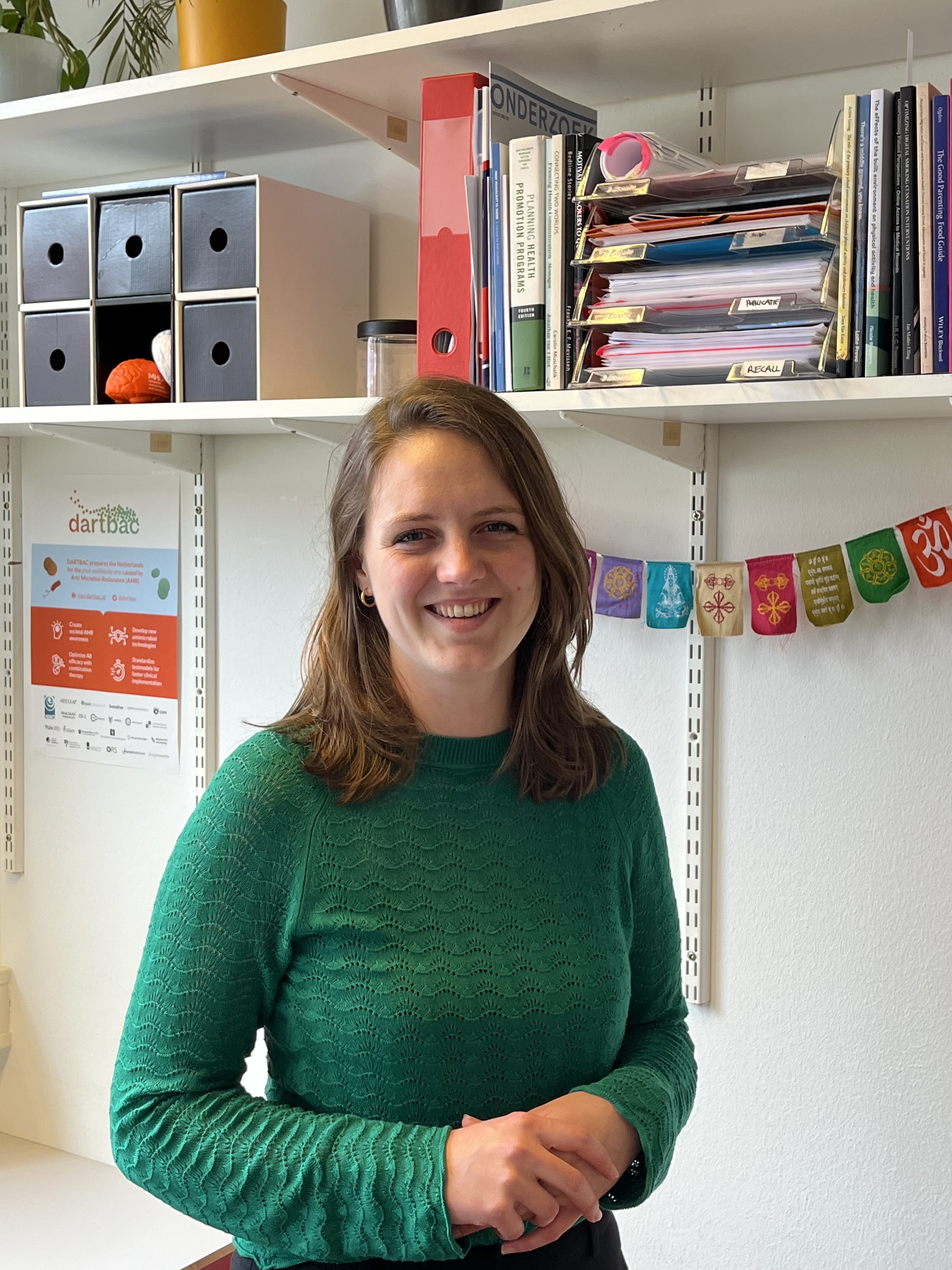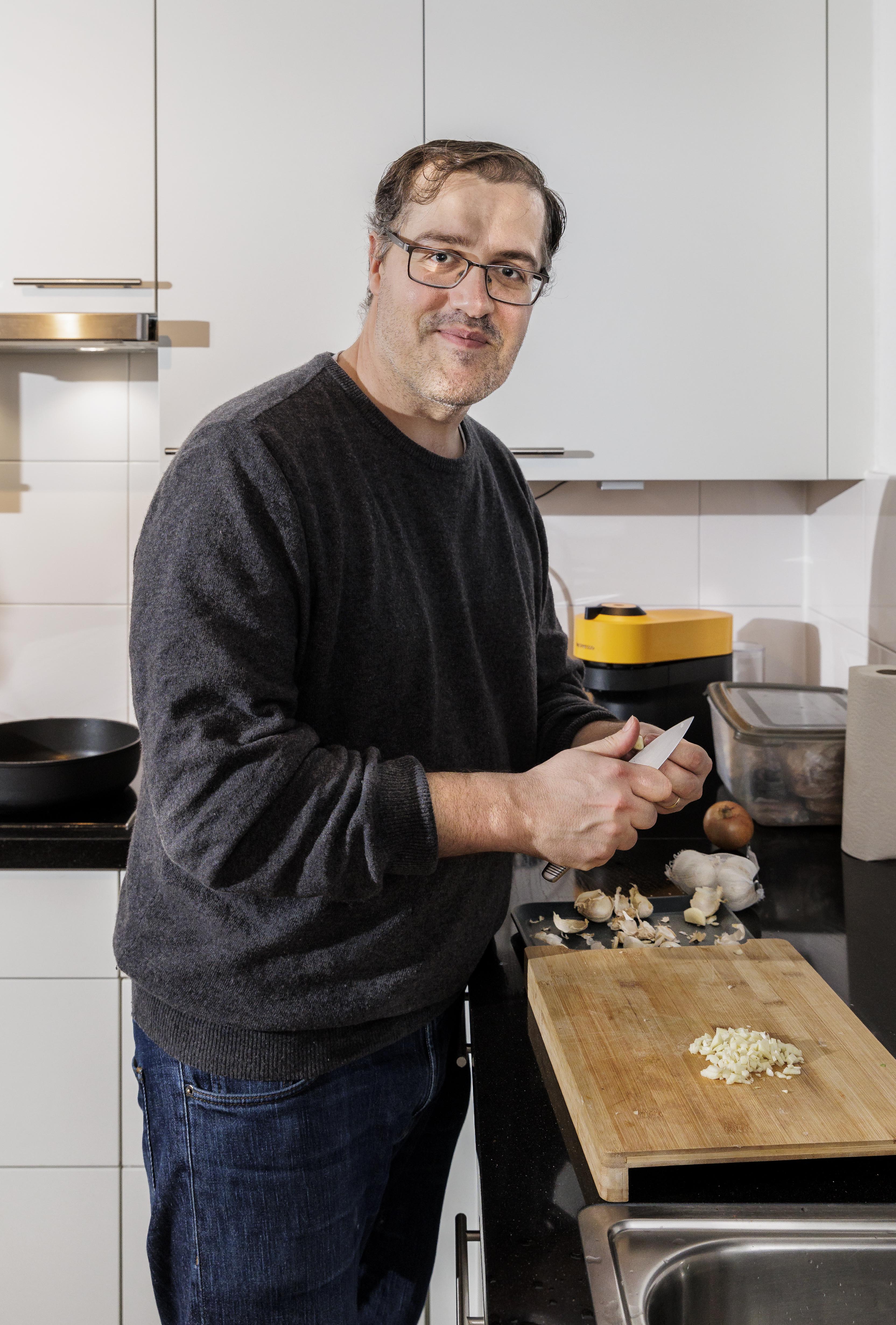Diversity Day 8 March: lively discussions about consent and age
On the initiative of the UM Centre for Gender and Diversity, the centre’s director Lies Wesseling and diversity officer Constance Sommerey organized the first UM Diversity Day on International Women’s Day, March 8th.
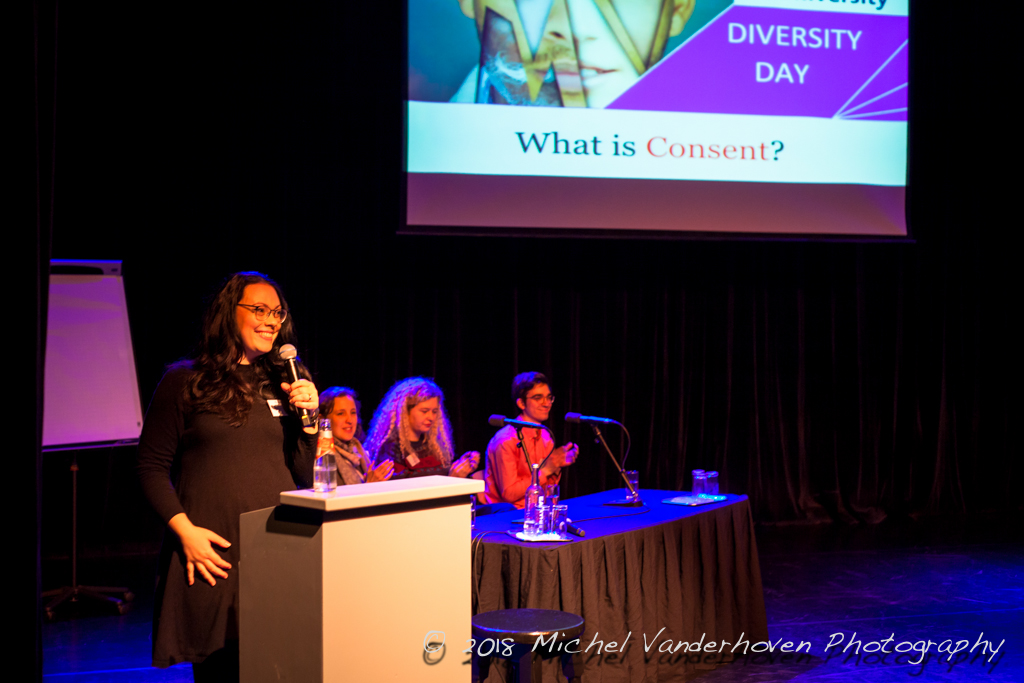
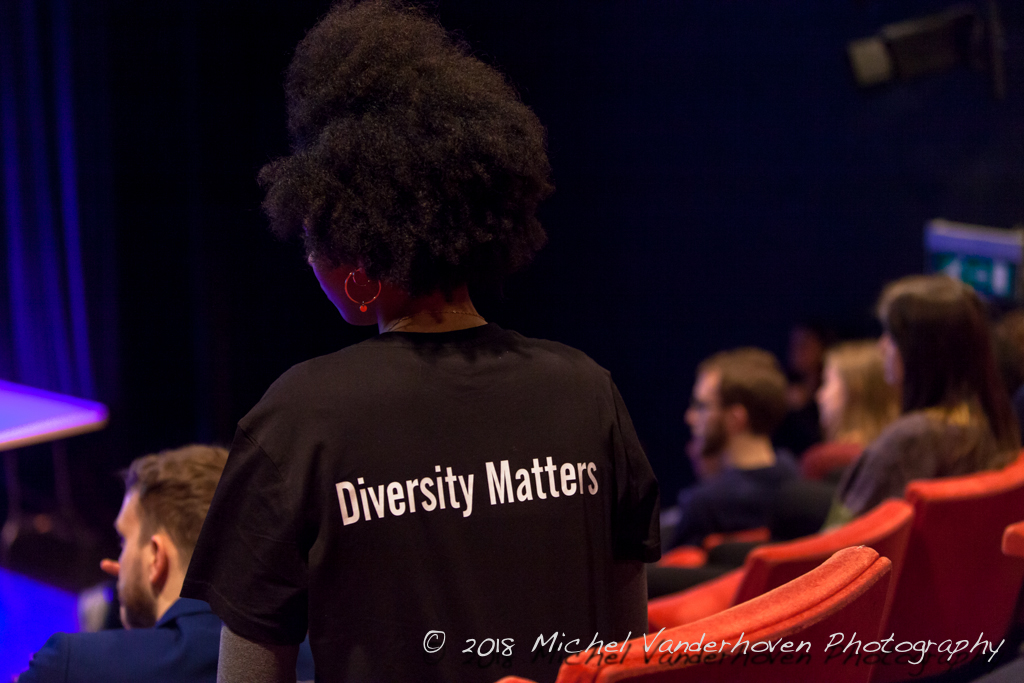
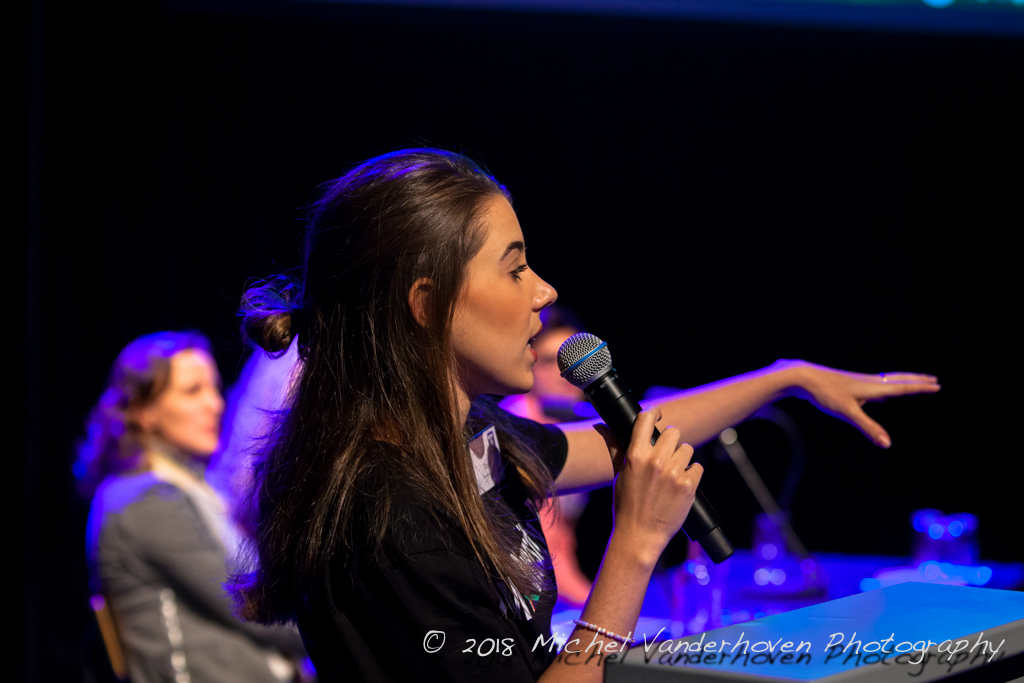
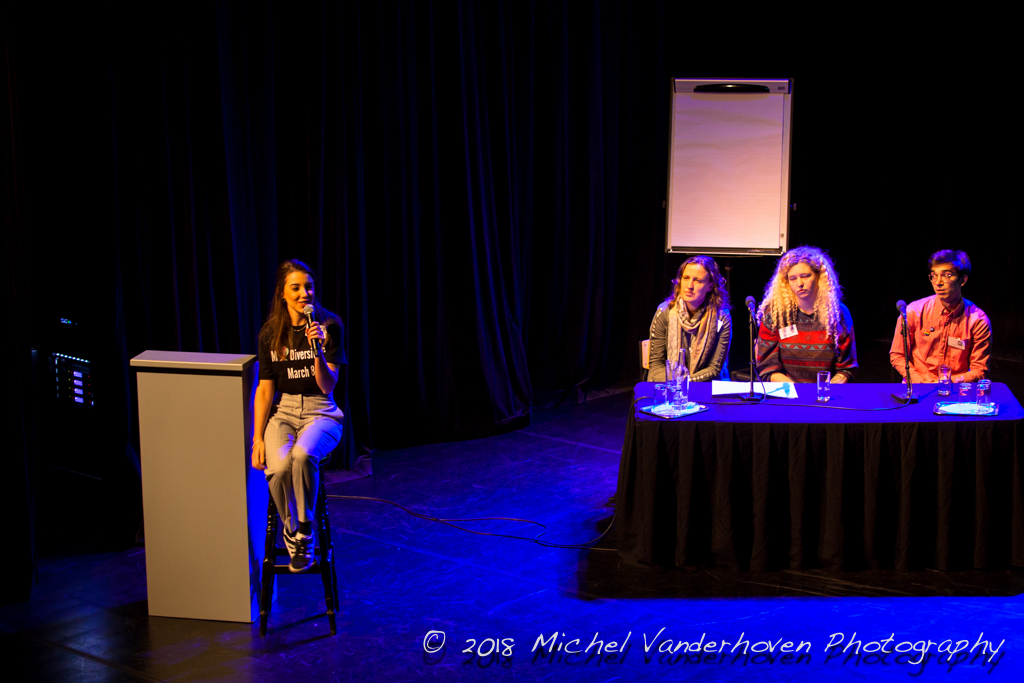
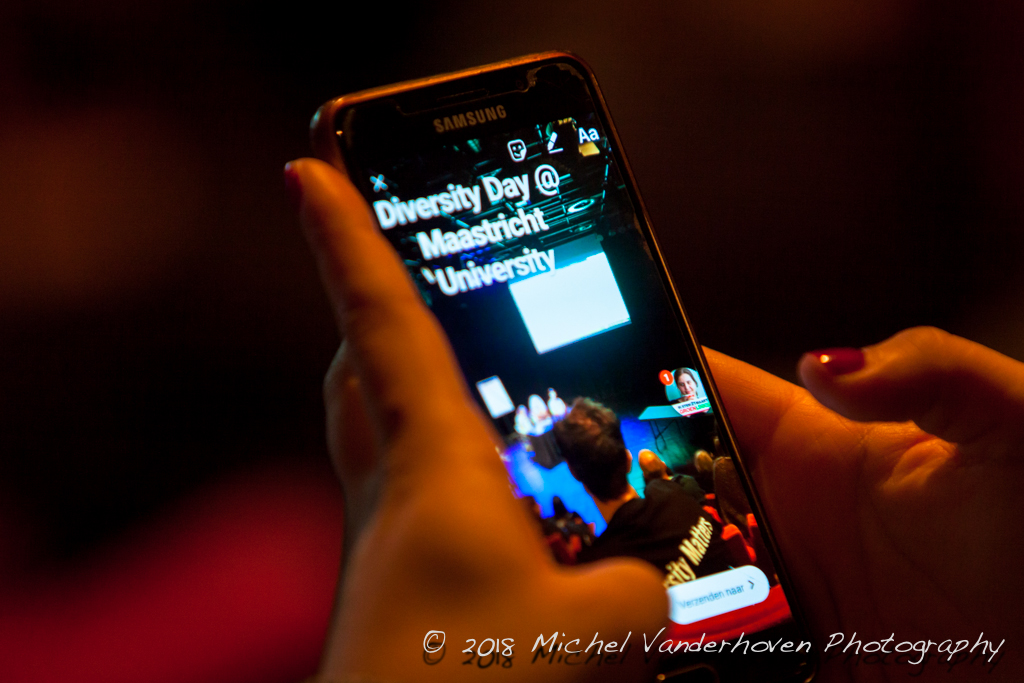
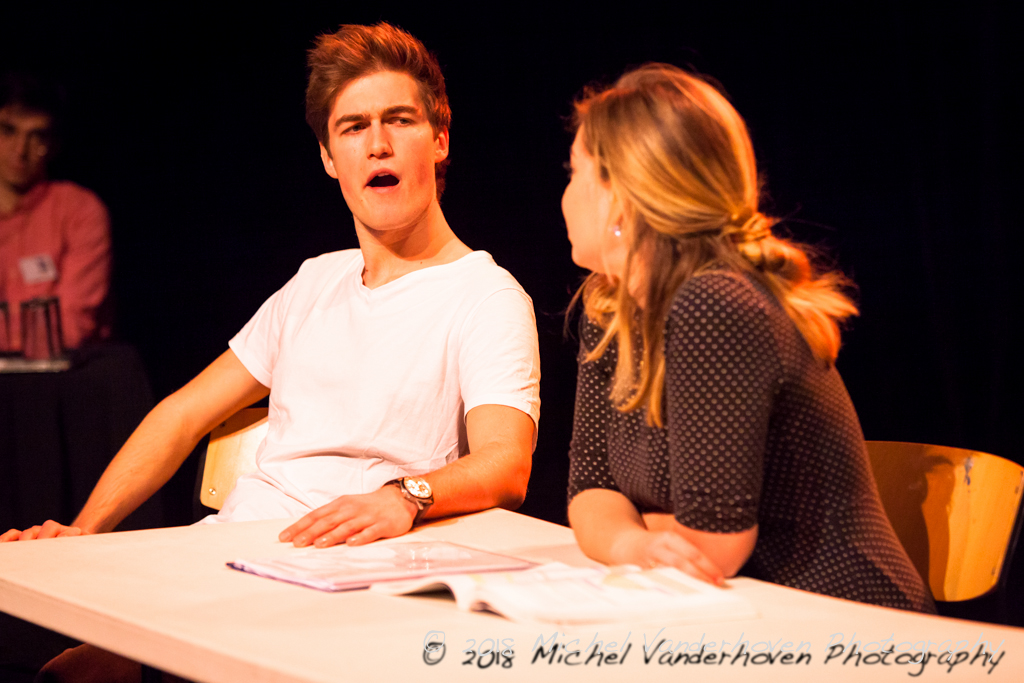
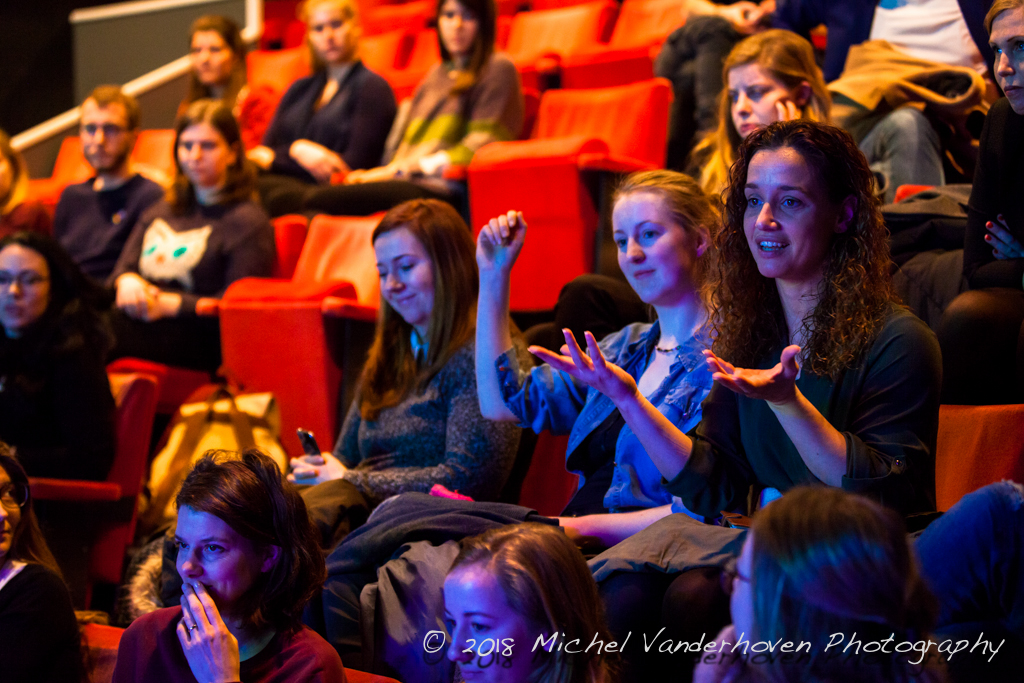
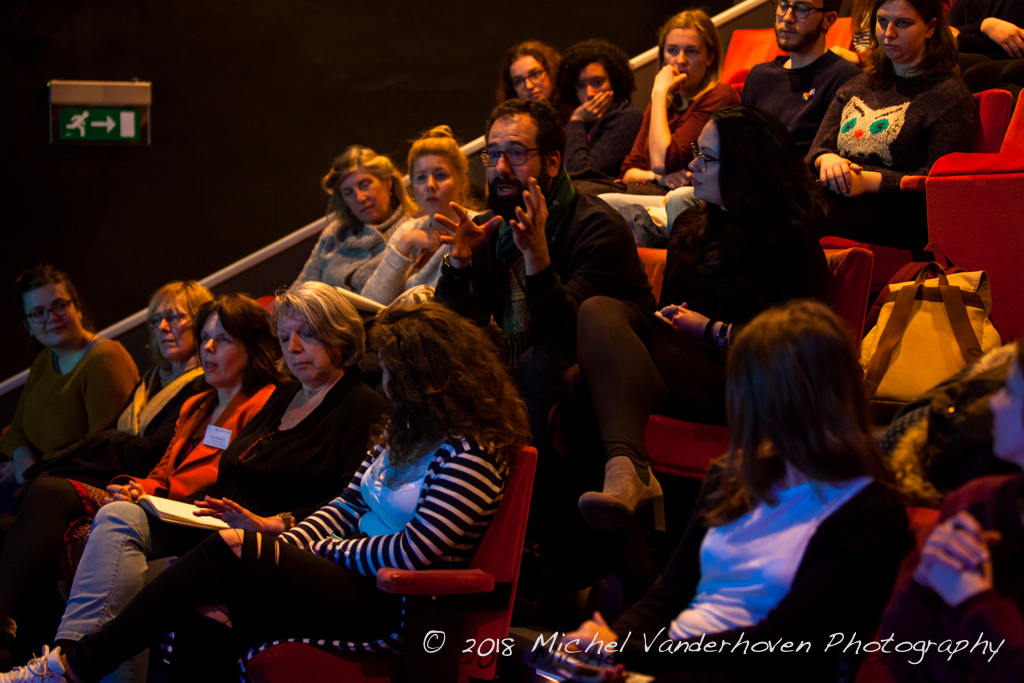
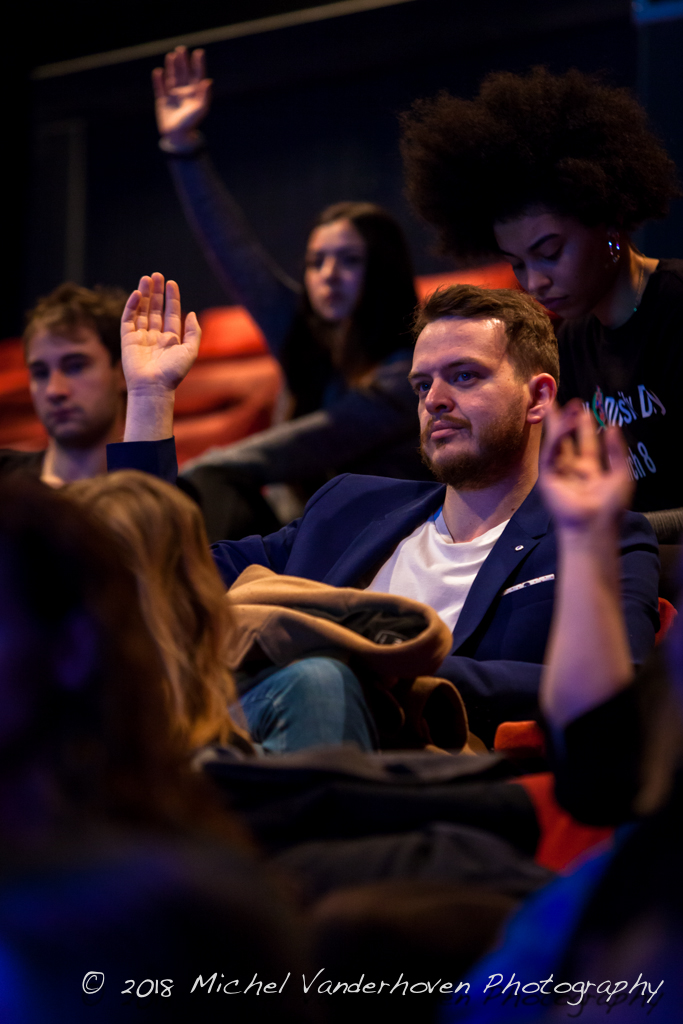
The morning programme on Sexual harassment and the meaning of consent at UM was developed by Feminists of Maastricht. Staged scenarios exploring the meaning of consent among students or between students and tutors were discussed with the audience and a panel of experts including representatives of Dionyx, the LGBTQIA+ youth and student organisation, student initiative Consent Matters, UCM Feminists, and UM’s student Confidential Advisor/Student Psychologist Wendy Geijen.
The audience voted on what is and isn’t permissible, which was an eye-opener to many. Most people agreed that relationships, though based on mutual attraction and consent, are not acceptable if they involve an imbalance of power (e.g. tutor/staff member and a student). The clear consensus between panel and audience on unwanted sexual behaviour was: know your boundaries and communicate them clearly and in time; just as important, make sure you understand and respect the other person’s boundaries, which might be different to yours.
How to become an Age-Friendly University
The second part of UM Diversity Day was devoted to age. Rianne Letschert signed to the principles making us the first continental European university to become part of the network of Age-Friendly Universities. Lies Wesseling introduced the programme, stating that social exclusion also occurs on the basis of age. HR statistics show that burn-outs are significantly more prevalent among those aged 25 to 35, while the increased percentage of those 55 and older pose a significant challenge to organisations.
Aagje Swinnen, assistant professor at the Centre for Gender and Diversity, moderated the afternoon session on the meaning of being ‘aged by culture’ in 2018, arguing that age categories blur, youth is the new norm and that age stereotypes prevail in academia (e.g. that the young are more productive, flexible, ambitious, etc.). However, in reality young academics are often stressed and demotivated by the lack of intellectual freedom (through close supervision, pressure to publish on certain themes, etc.) and lack of career perspectives. As for great innovations: those are developed by people in their 40’s and up.
Towards an Age-Friendly UM
There followed a presentation on age-friendly universities by Christine O’Kelly from Dublin City University, coordinator of the Age-Friendly University Network, as well as a panel discussion about UM and age(ing), involving Luana Russo, assistant professor at FASoS, Anna Wolters, independent researcher and UM alumna, Christine O’Kelly of Dublin City University, André Klip, professor at the FL, and Antoon Vugts, HR director at UM. Among the outcomes were the following suggestions:
- do not make elderly employees a problem, focus on sustainability
- create Personal Development Plans for a number of years
- expect small steps to reach goals, and go for trial by error
- change assessment procedures (employee on track, slower/faster than expected?)
- for the age group 31 – 35 conducting research is hard because of the combination family/work. Facilitate this group with funding and time
- look outside the UM and collaborate with (inter)national universities to solve problems related to specific ages
- use the knowledge and expertise of retired academics to support younger academics.
Rector Rianne Letschert closed the event speaking about opportunities for elderly employees and working towards good conditions for young academics. She symbolically signed the Ten Principles of an Age-Friendly University: “I declare that we wish to confront demographic changes and work towards an Age-Friendly UM.”
Also read
-
It is a problem that will not disappear with a one-size-fits-all solution, says NUTRIM professor Gijs Goossens in L1 interview.
-
In the upcoming months, the Faculty of Health, Medicine and Life Sciences will share tips on Instagram on how to live a healthier life. Not just a random collection, but tips based on actual research happening at our faculty. The brains behind this idea are Lieve Vonken and Gido Metz, PhD candidates...
-
David Baião Barata was born and raised in Castelo Branco, in eastern Portugal. His mother cooked typical Portuguese cuisine: hearty soups, lots of meat, everything doused in olive oil. It was only during his studies in cell and molecular biology in Lisbon that he began cooking for himself. And it...
